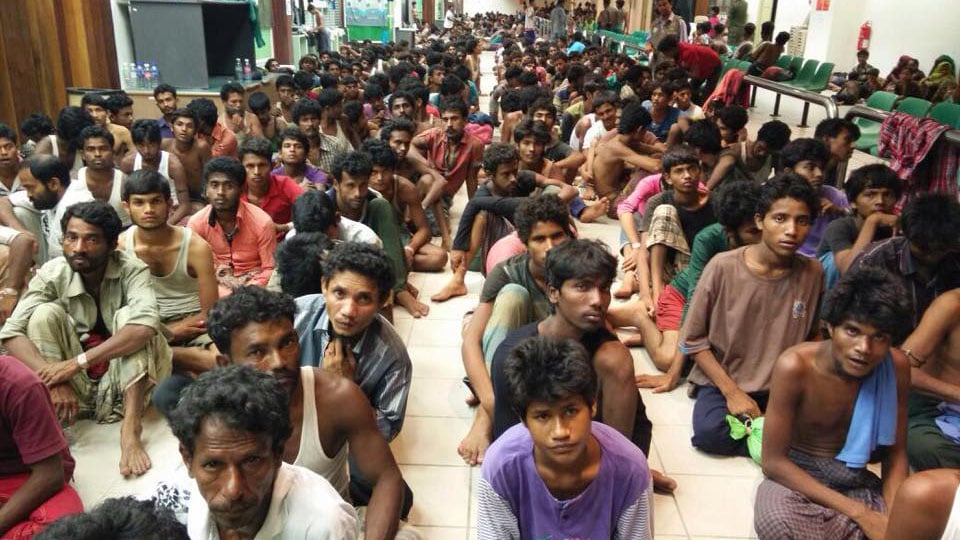Five to read:
The Mystery of ISIS
“Who could have imagined that a movement founded by a man from a video store in provincial Jordan would tear off a third of the territory of Syria and Iraq… defeat… the combined militaries of a dozen of the wealthiest countries on earth – (and) create a mini empire?” In this nuanced and very readable review of two new publications charting the rise of the so-called Islamic State, the New York Review of Books presents an authoritative take on the global terror group and the West’s apparent inability to respond.
Worm wars
Various figures in the international development and global health community have been caught up in fierce debate after new research from the London School of Hygiene and Tropical Medicine (LSHTM) appears to debunk claims that deworming schemes improve educational attainment. Amanda Taub, in Vox, says the discussion presents important lessons for aid workers. “Everyone likes easy solutions to hard problems. But when we become too focused on finding them, we lose sight of the truth: that the most effective solutions are often complex and difficult to implement,” she says.
Much Better for the UN to Take Risks
Jean-Marie Guéhenno, president and CEO of the International Crisis Group and former UN under-secretary-general for peacekeeping operations, calls out the UN over what he says is its risk aversion. “It’s much better not to take risks for a career at the UN. But it’s much better for the UN to take risks,” Guéhenno says, noting that as global conflicts evolve, so must UN policies on how to respond.
There is also a video recording of Guéhenno making his remarks.
‘Sea slaves’: the human misery that feeds pets and livestock
A chilling reportage about the thousands of migrant workers – largely from Cambodia and Myanmar – who are kept in slave-like conditions in mostly Thai-owned boats in the South China Sea. Weak maritime regulations and a growing demand for seafood is driving the practice, which involves some migrants being stuck at sea for years at a time. Rights groups are calling for more to be done to regulate the industry and for seafood and pet-food producers who buy Thai fish products to show more accountability over their sourcing.
South Sudan: keeping the faith with the IGAD peace process
Confused about the conflict in South Sudan? This report from the International Crisis Group provides examines the complex domestic and regional rivalries fuelling the violence in Africa’s youngest country, which has caused one of the world’s most devastating humanitarian crises. The paper looks specifically at the peace talks being led by the Horn of Africa’s regional body, the Intergovernmental Authority on Development (IGAD). It breaks down why progress has been so slow, but why it is worth preserving.
One to watch:
Calais migrants: life in the Jungle
The Guardian newspaper spent three weeks in the port city of Calais, where thousands of migrants and refugees have gathered, hoping to claim asylum in Europe, and in particular travel via the EuroTunnel to the United Kingdom. Chilling footage and tragic tales, but also some remarkable stories of resilience and hope as people set up churches and businesses creating a semi-permanence to the camp known as “the jungle”.
One to listen to:
HSBC, Muslims and Me
Why did international banking giant HSBC suddenly close the bank accounts of several prominent British Muslims, including the head of a think tank? The BBC’s Anna Meisel and Peter Oborne – the associate editor of the Spectator who resigned from the Daily Telegraph after it failed to publish an article about the issue – take a look at the closures, shining a light on the complex world of banking compliance that can be a headache for many in the NGO sector.
From IRIN:
Morocco: The forgotten frontline of the migrant crisis
Long a transit country, and itself the generator of 3.4 million migrants, Morocco has become a migrant choke point for thousands of sub-Saharan Africans trying to cross the Mediterranean. Our editor-at-large Obi Anyadike reports from the costal city of Nador, which borders the Spanish port enclave of Melilla, seen as a gateway to Europe. In this multimedia package, he speaks to migrants camping in forests waiting to take their chance to cross, and looks at how the Moroccan and Spanish governments are responding to the growing caseload of migrants.
Mapped: A World at War
The news is dominated by wars and unrest in places like Syria, Iraq and Ukraine, but there are dozens of other conflicts around the globe just as devastating that get far less media attention. On Monday, IRIN will launch the first installment of a series on the world’s forgotten conflicts. Our package of stories, films and graphics will look in-depth at the situation in South Kordofan in Sudan, Casamance in Senegal, and the border states of southern Thailand. As a teaser, we published our interactive map showing all the ongoing conflicts around the world. Have a look, click around, and let us know which we should cover.
lr/ag





